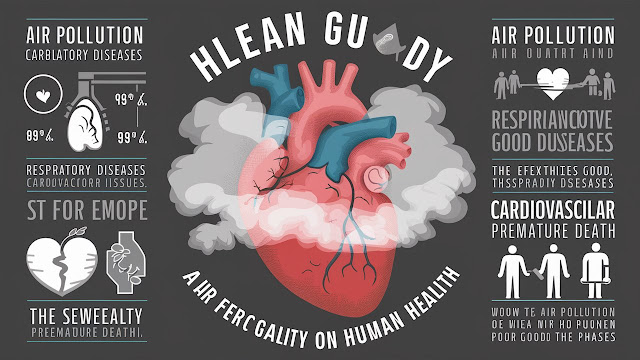Understanding the Impact of Air Quality on Health
Exploring the Relationship Between Air Quality and Health
Air quality plays a pivotal role in determining human health, with both short-term and long-term exposure to air pollution significantly impacting various aspects of well-being. As communities grapple with the consequences of industrialization, urbanization, and environmental degradation, understanding the intricate relationship between air quality and health has become increasingly vital. This article delves into the multifaceted impact of air quality on health and highlights the diverse ways in which poor air quality can adversely affect individuals and populations.
Respiratory Health Effects
One of the most prominent consequences of poor air quality is its adverse effects on respiratory health. Inhalation of air pollutants, such as particulate matter (PM), nitrogen dioxide (NO2), sulfur dioxide (SO2), ozone (O3), and carbon monoxide (CO), can irritate the respiratory tract, exacerbate existing respiratory conditions, and increase the risk of developing new respiratory illnesses. Prolonged exposure to air pollution has been linked to conditions such as asthma, chronic obstructive pulmonary disease (COPD), bronchitis, and respiratory infections, contributing to reduced lung function and impaired respiratory health over time.
Cardiovascular Health Effects
In addition to respiratory health, air pollution also poses significant risks to cardiovascular health. Exposure to fine particulate matter (PM2.5) and other air pollutants has been associated with an increased incidence of cardiovascular diseases, including heart attacks, strokes, hypertension, and coronary artery disease. Air pollution can induce inflammation, oxidative stress, endothelial dysfunction, and vascular damage, contributing to the development and progression of cardiovascular conditions. Moreover, exposure to air pollution has been linked to higher rates of hospital admissions for cardiovascular events and elevated mortality from cardiovascular causes.
Neurological and Cognitive Health Effects
Emerging evidence suggests that air pollution may also impact neurological and cognitive health. Exposure to air pollutants, particularly fine particulate matter and traffic-related pollutants, has been associated with cognitive decline, neurodevelopmental disorders in children, and an increased risk of neurodegenerative diseases such as Alzheimer's and Parkinson's disease. Air pollution-induced neuroinflammation, oxidative stress, and disruption of blood-brain barrier function are believed to underlie these neurological effects, highlighting the importance of addressing air quality as a public health priority.
Reproductive and Maternal Health Effects
Poor air quality can have implications for reproductive and maternal health, affecting pregnancy outcomes and fetal development. Studies have shown associations between air pollution exposure and adverse reproductive outcomes such as preterm birth, low birth weight, congenital anomalies, and infant mortality. Maternal exposure to air pollutants during pregnancy may increase the risk of pregnancy complications, gestational hypertension, preeclampsia, and impaired fetal growth. Furthermore, air pollution has been linked to reduced fertility and adverse effects on sperm quality and reproductive hormone levels in both men and women.
Long-Term Health Implications
Beyond the immediate health effects, long-term exposure to poor air quality can have profound implications for overall health and well-being. Chronic exposure to air pollution is associated with an increased risk of developing chronic diseases such as lung cancer, cardiovascular disease, respiratory diseases, and metabolic disorders. Additionally, air pollution can exacerbate existing health conditions, reduce life expectancy, and contribute to health disparities among vulnerable populations. Addressing air quality issues through regulatory measures, pollution control strategies, and public health interventions is crucial for protecting human health and promoting a sustainable environment for future generations.
Conclusion
In conclusion, air quality exerts a significant influence on human health, with poor air quality posing diverse and far-reaching health risks. From respiratory and cardiovascular effects to neurological, reproductive, and long-term health implications, air pollution can have detrimental effects on individuals and communities worldwide. It is imperative for policymakers, healthcare professionals, and the public to prioritize efforts to improve air quality through pollution reduction measures, sustainable development practices, and public awareness initiatives. By addressing air quality as a fundamental determinant of health, we can safeguard human well-being, enhance quality of life, and create healthier environments for all.





No comments:
Post a Comment